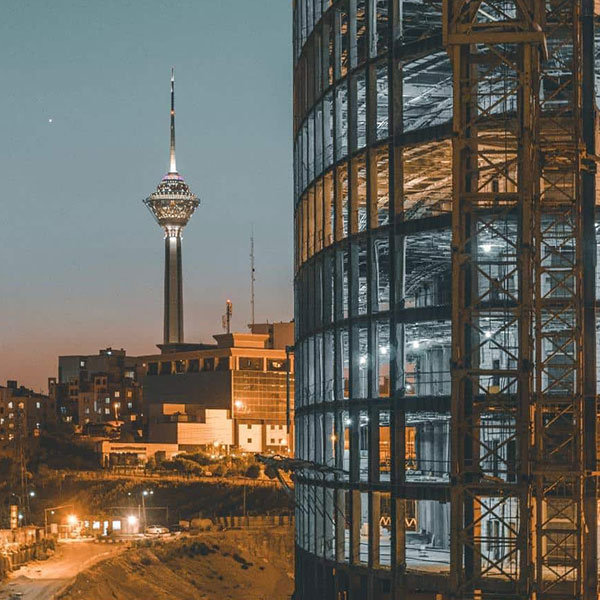


The United Nations Global Climate Summit, also known as COP26, kicked off on October 31, in Glasgow, Scotland with nearly 200 countries participating, to bring state parties together once again to facilitate a consensus over the goals of the Paris Agreement and the UN Framework Convention on Climate Change, and Iran, as a strategic actor in the Middle East, and one of the main fossil fuel producers in the region, was also a participant. The fact that the country is highly exposed to the effects of climate change because of being geographically located in an arid and semi-arid region, which has resulted in increases in temperature, declines in precipitation, drought and loss of biodiversity over the past years, makes it more important for Iran to adopt a more practical approach towards climate related issues.
According to Iranian officials who attended the COP26, the country intends to modify national laws and policies to reform energy consumption patterns, since it is crucial for all countries to contribute to reduction of greenhouse gas emissions in order to achieve the goal of limiting the rise in global temperatures to just 1.5 degrees Celsius.
However, one significant barrier prevents Iran from doing so: Sanctions. As it is stated by Iranian officials, “If sanctions are lifted and funding is provided, there would be no obstacle to the realization of Net-zero programs in Iran and therefore, the country could contribute more effectively to reductions of greenhouse gas emissions, since it would only be possible at that time for modern technologies and finances to be transferred to the country in order to for infrastructures to be modernized to maintain Net-zero.”
Although the negotiations and agreements were promising overall, Iran was not satisfied with one specific resolution of the draft: phasing out fossil fuel subsidies on paragraph 36. Iran expressed its support for India, the representative of which stated that in a situation when developing countries are still struggling with advancement of their development agendas and eradication of poverty, it would be impossible for them to make promises about phasing out coal and fossil fuel subsidies. That was why such countries criticized the agreement for “lacking balance”, as they found it unfair to be prevented from using what they call “carbon budget” to make their ends meet.
The Administrative Court of Justice demanded that attorneys at Iran Bar Association file their appeals electronically, instead of delivering them in person. According to an official letter received by the National Bar Association, henceforward all attorneys are able to file petitions and appeals electronically, without being obliged to do it in person, to curb the usage of paper and to reduce public attendances in courts. This is the second phase of digitalization of legal procedures in the judiciary and with impressive breakthroughs achieved in the first two steps, it is expected that in the near future, it would be possible to carry out all formal bureaucratic procedures electronically to save time, money and the environment.
Iranian Parliament, by merging the Industrial Property Protection Plan and the Government's Industrial Property Protection Bill and amending its title and text, approved the generalities of the Industrial Property Protection Plan in 152 Articles with 167 votes on November 17, 2021. Iranian Legislature has reviewed the articles of the industrial property protection plan in the ninth, tenth and eleventh Parliaments, and this plan has been examined in several meetings with the presence of experts and representatives of related bodies.
The reason for the need to approve the Industrial Property Protection Plan is the existing lacunae after the expiration of the experimental period of the Act on Patents, Industrial Designs and Trademarks on 12/02/2019. This experimental Act was extended with the permission of the Iranian Supreme Leader. While the patent registration authority is still the Registry of Deeds and Property according to the new Plan, the government officials believe that an independent body should be required to do so. Therefore, they have declared their opposition to this plan.
Last week it was announced that a UAE-Iran-Turkey transit corridor was officially launched with the first shipment from the UAE port of Sharjah heading for the Turkish port of Mersin docking at the Iranian Shahid Rajaei port. This route reduces the transit time between UAE and Turkey by two-thirds compared to the sea route between the two nations. The announcement comes after a recent thaw in UAE’s relations with Iran and Turkey. In recent years, UAE’s foreign relations with these two regional powers were strained; but recently, the Persian Gulf nation has shown some eagerness for rewarming with Iran and Turkey, in its trade relations in particular. The news also comes after a recent announcement that authorities in Iran, Turkey and Pakistan are keen on reopening of a rail transit route between Islamabad-Tehran-Istanbul. The road transport in this route has been already relaunched when a few road containers left Islamabad for Istanbul via Iran. On the other hand, the prospects of a peace deal in south Caucasus between Azerbaijan and Armenia, has raised the hopes that the old rail route between Iran and Russia would be relaunched in near future. The route was abandoned after the collapse of the Soviet Union when regional wars erupted in Caucasus. Of course, reopening of these routes will further the economic integration of the region and will raise the country’s economic prospects.